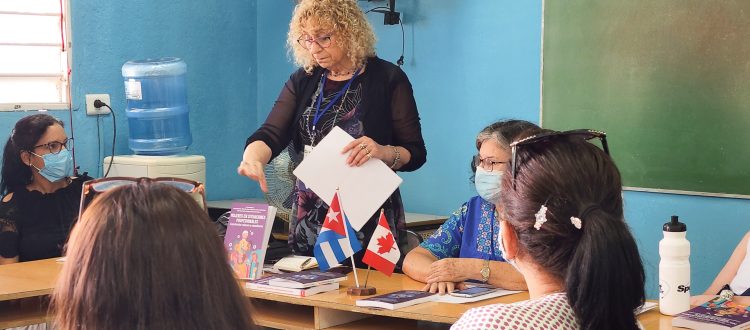University of Holguín to Host Online Panels in Politics, Law, and Social Sciences
The University of Holguín will be hosting a special online session on October 13 at 9:00am EST as part of the 2nd International Congress for Transatlantic Dialogue: Politics, Law and Social Sciences (TEMPUS 2022). This special live online session will be accessible in both Spanish and English.
The theme of the online panel is The 2030 Agenda: Between Conflicts and New Paradigms: Reflections and Strategies for Action. The panel will be chaired by Dr. Lucia Picarella (Catholic University of Colombia, Colombia) and Stellamarina Donato (LUMSA University, Rome, Italy).
The main objective of this event is to promote the integration of different social knowledge and foster positive experiences. The event will also evaluate challenges and perspectives of law, politics, and social sciences within transnational contexts.
The Congress will host internationally renowned experts, academics, government policymakers, and students. As well as specialists in law, political science, and other social sciences will deliver keynote lectures. The lectures will be accompanied by symposia and workshops on priority issues of global impact.
The congress is hosted by the University of Holguín, Cuba. Co-sponsors include the:
- University of Oriente, Cuba
- National Union of Jurists of Cuba (UNJC)
- Holguín Provincial Delegation of the Ministry of Science, Technology, and Environment (CITMA)
- International Research Network “Narratives and Social Changes” of the University of Salerno, Italy
- Cooperation Projects of the University of Valencia (Spain) “Strengthening of Constitutional Rights in Cuba through the Unit of Studies on Constitutional Justice”
Topics to be presented and discussed in the virtual workshop will include:
Posibilidades y Límites de las Luchas por la Justicia Social
(Possibilities and Limits of Struggles for Social Justice)
Dr. Pablo Guadarrama Gonzalez, Catholic University of Colombia, Colombia
Dr. Guadarrama will talk about the different forms of social justice since the beginning of the civilization process, how they were directed to protect certain individuals, and how these types of struggles have been diversified with the increase of social differences.
From Social Justice to Eco-Justice: New Environmental Sustainability Policies Towards 2030. Dr. Cubeddu Francesca, Research Scientist – University of Roma Tre, Italy and
Dr. Mangone Emiliana – University of Salerno, Italy.
Dr. Cubeddu and Dr. Mangone will address The 2030 Agenda for Sustainable Development, signed on 25 September 2015 by 193 United Nations countries, including Latin American countries, expresses an unsustainable development model, not only in terms of environment, but also economic and social terms.
El Paradigma de la “Democracia Ambiental” en Colombia: Entre las Luchas de los Movimientos Sociales y los Objetivos de la Agenda 2030
(The Paradigm of “Environmental Democracy” in Colombia: Between the Struggles of Social Movements and the Objectives of Agenda 2030).
Dr. Cristóbal Padilla Tejeda – Instituto Caribeño de Altos Estudios Políticos y Sociales, ICAEPS (Colombia).
Dr. Padilla will discuss his research on the relevance that environmental conflicts have acquired in recent decades, increasingly becoming “new conflicts” that occupy the political agenda of world leaders, and have repercussions at political, geographic, cultural, economic and social levels.
Freedom and Social Justice as Constituents of Human and Women’s Rights Until The 2030 Agenda.
Dr. Stellamarina Donato – LUMSA University, Rome, Italy.
Dr Donato will talk about research that aims to analyze the role of international organizations (UN, COE) in the debate on freedom and social justice as part of human rights, with particular emphasis on women’s rights.
Feminización de la Pobreza en Colombia: Estrategias y Acciones para la Implementación de la Agenda 2030
(Feminization of Poverty in Colombia: Strategies and Actions for the Implementation of Agenda 2030).
Dr. Lucia Picarella – Catholic University of Colombia, Colombia
Dr. Picarella will discuss how women have always been one of the most vulnerable categories at risk of poverty and how it is part of the various systems of social, family, labor, and welfare integration.

